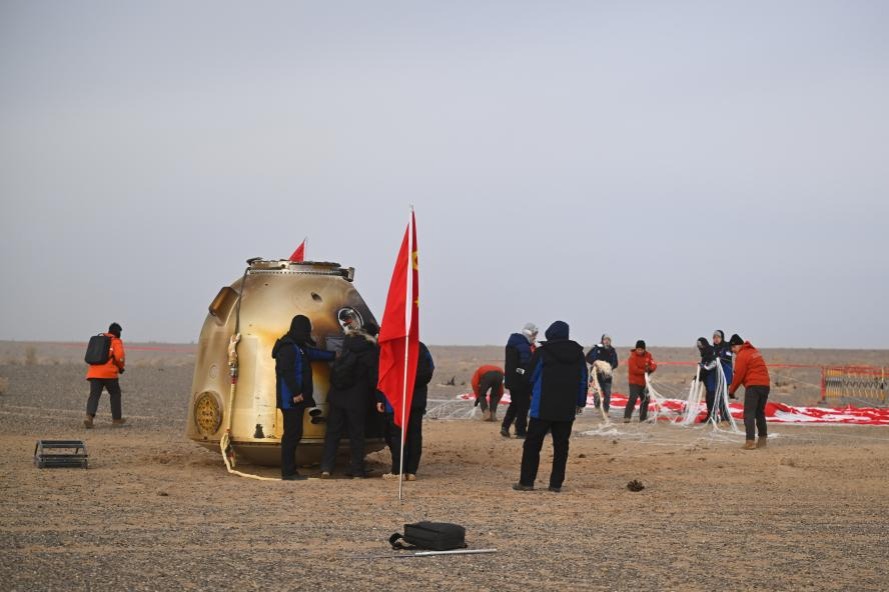Leaders should set cooperative tone


Xi Jinping and Barack Obama can show bureaucrats in Beijing and Washington how to handle sticky issues
US President Barack Obama is visiting Beijing to attend the Asia-Pacific Economic Cooperation summit on Nov 10 and 11. However, it is his extra day in the Chinese capital on Nov 12 that is likely to attract the most attention, as he is due to meet Chinese President Xi Jinping for face-to-face talks, before they both head to Brisbane, Australia, for the G20 meeting on Nov 15 and 16.
One US official revealed that Obama prefers smaller meetings where real issues can be talked about in a more informal way. There is indeed a long list of issues that the two leaders need to discuss, from the tensions in the East and South China seas and cybersecurity to trade and investment and military-to-military ties, to name just a few.
However, since each of these issues is complex and some are long-standing, it may not be time well spent if they try to delve deep into any of the issues on that precious single day in Beijing. After all, it may take bureaucrats of both governments many meetings over months or years to resolve one single issue.
The two presidents, however, could and should point out the right direction their teams of bureaucrats should take. For example, regarding the recent encounter between a Chinese People's Liberation Army fighter jet and a US surveillance plane in airspace off China's Hainan Island, both sides could step back a bit. Is the United States willing to gradually reduce its close-in reconnaissance near the Chinese coast? After all, it is offensive if you stand on the street nand stare into someone's window every day and claim that it's legal because you're in a "public space".
If the US reduces its close-in reconnaissance, the Chinese are likely to agree to fly fewer jets to monitor or intercept these spy planes, which it does for the sake of national security.

The same is true on the issue of cybersecurity. It is probably hard to convince anyone that the US is more threatened by cyberattacks than anyone else, especially since it runs the world's most powerful surveillance apparatus, the National Security Agency. So any talk of setting international norms in cyberspace should start with the US setting a good example.
The South China Sea is likely to be a hot issue. But instead of trying to force its "freeze" solution upon others, the US should have faith in the wisdom of the countries directly involved and their ability to solve the issue peacefully.
It would be nave for anyone to think any of these complicated historical issues can be fixed overnight. A reminder is that after pursuing regime change and spreading so-called freedom and democracy in the Middle East for more than a decade, the US is faced with the nightmarish rise of the Islamic State group armed with US weapons.
Obama and Xi should not be obsessed with one single issue. Yet, the tone they set will be enormously important for their subordinates to follow in the coming years, whether in the trade or military field.
The informal summit in Sunnylands, California, in June last year drew global attention and excited many people because both leaders pledged to expand their cooperation and effectively manage their differences. But despite the ensuing growth in military-to-military exchanges and expanding trade and people-to-people ties, we have seen the intertwined relationship being easily hijacked by negative rhetoric over the differences and by one incident after another.
That makes it all the more important for the top leaders of the two countries to meet more often and put more emphasis on expanding cooperation. After all, cooperation has been the main theme of China-US relations over the last four decades.
The author, based in Washington, is deputy editor of China Daily USA. Contact the writer at chenweihua@chinadailyusa.com
(China Daily Africa Weekly 09/12/2014 page13)
Today's Top News
- Wake-up call for Europe to review its dependency: China Daily editorial
- China reports 5% GDP growth in 2025
- Return capsule of Shenzhou XX safely returns to Earth
- Sanya rises as magnet for Russian tourists
- China's steady opening-up for Asia-Pacific economic growth
- Blueprint seen as a boon for entire world





























